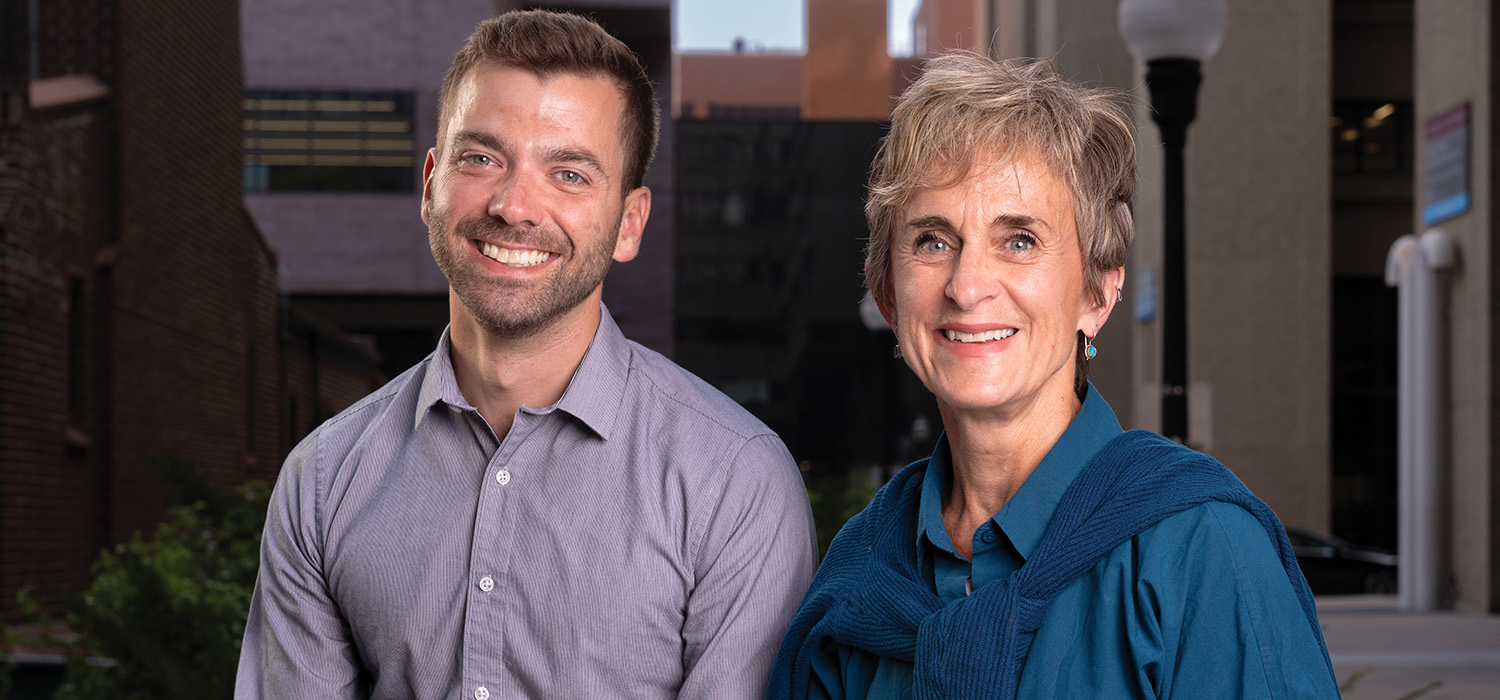Study seeks to increase the quality of adolescent preventive health visits
Easy-to-use adolescent health communication toolkit features one-page resources, training opportunities and videos
November 11, 2024
Katherine Pierson

Christopher Mehus, research associate professor, and Renee Sieving, professor, led the design of TALK: Toolkit for Adolescent Care.
Primary care clinicians and parents know that the most important topics to address in adolescent health — including sexual and mental health — can also be the most sensitive.
It can often be a challenge to know how to start a conversation about these subjects.
In response, an interdisciplinary team of researchers and clinicians at the University of Minnesota’s Healthy Youth Development – Prevention Research Center, including School of Nursing Professor Renee Sieving, PhD, RN, FAAN, FSAHM, designed TALK: Toolkit for Adolescent Care to provide training and resources to support conversations with adolescents about potentially sensitive health topics.
The TALK study, which was supported by Centers for Disease Control and Prevention funding, builds on the team’s Confidential Adolescent Sexual Health Services (CASH) research. “That study found young people want to talk to about psychosocial and sexual health topics but they don’t often have the opportunity because clinicians aren’t asking them. We learned from that observational study that both clinicians and parents often lack the words to talk about these topics with adolescents,” says Sieving. “The TALK study is the next step. Based on what we learned from the CASH study, we decided to turn this into a program that will be utilized by primary care clinics.”
TALK includes three broad components. It trains clinicians in a straightforward communications framework that involves supporting and guiding adolescents. It provides a set of one-page conversation guides on a variety of psychosocial and sexual health topics such as vaping, marijuana, alcohol, bullying, sex, sleep, sexual orientation, and screen time. Finally, TALK supports clinic-level changes that help clinicians introduce time alone with their adolescent patients as their health care setting’s new standard. Clinic level changes can include adjustments to patient flow and sending a letter to welcome both adolescents and their parents or guardians to adolescent care.
TALK emphasizes the discussion and implementation of time alone between a clinician and an adolescent patient as a standard part of a preventive care visit. Time alone offers adolescents an opportunity to build age-appropriate skills in taking responsibility for their own health care, as well as an opportunity to ask any questions that may be embarrassing or difficult to ask in front of a parent or guardian. TALK provides resources for clinicians to effectively include time alone while also facilitating and encouraging supportive parent-adolescent communication about health-related topics.
“Clinicians know that how something is said can be just as important as what is said,” says Principal Investigator Christopher Mehus, PhD, LMFT, a research associate professor in the College of Education and Development. “We designed TALK to provide practical tools that clinicians and parents can use to support their health-related conversations with teens.”
The University of Minnesota team tested the effectiveness of TALK as a clinic-based intervention to increase the delivery of high-quality preventive care for adolescents in partnership with four primary care systems.
“Though this small study needs well-powered replication to demonstrate evidence of the program’s efficacy, TALK shows promise as a program that is user-friendly for busy clinicians, feasible to implement, and effective in improving the quality of adolescent preventive health visits,” says Sieving.
For example, among parents/guardians, 45.5% reported their teen had time alone with their clinician before TALK implementation, with 77.5% reporting that their teen had time alone at post-test.
TALK Tools, a set of one-page conversation starters on a variety of health topics for clinicians and parents, garnered particularly positive feedback and are available for free at z.umn.edu/talk_toolkit.


